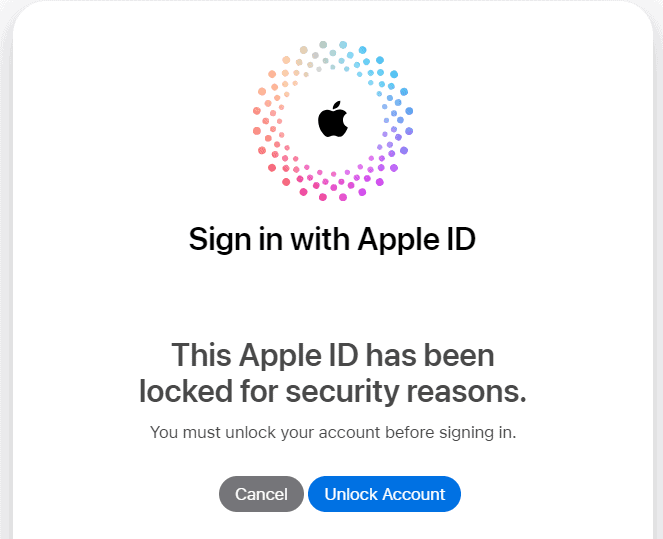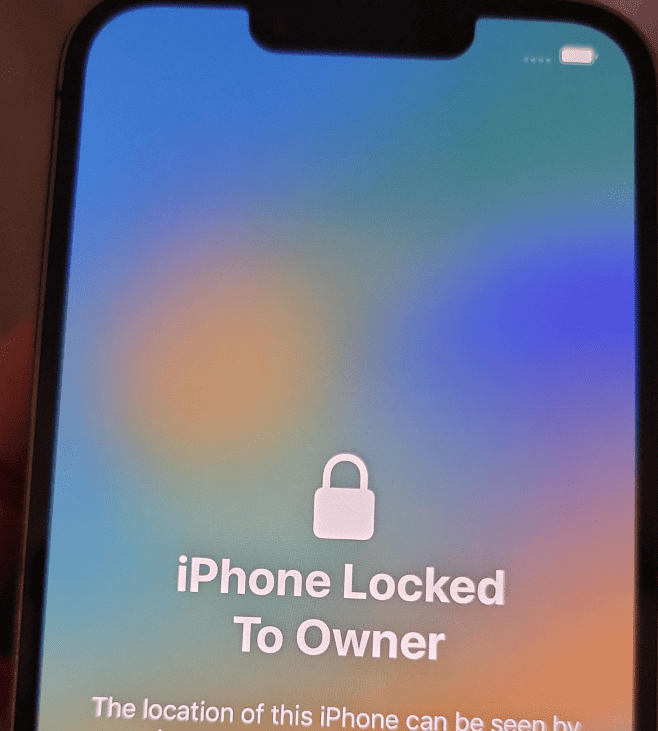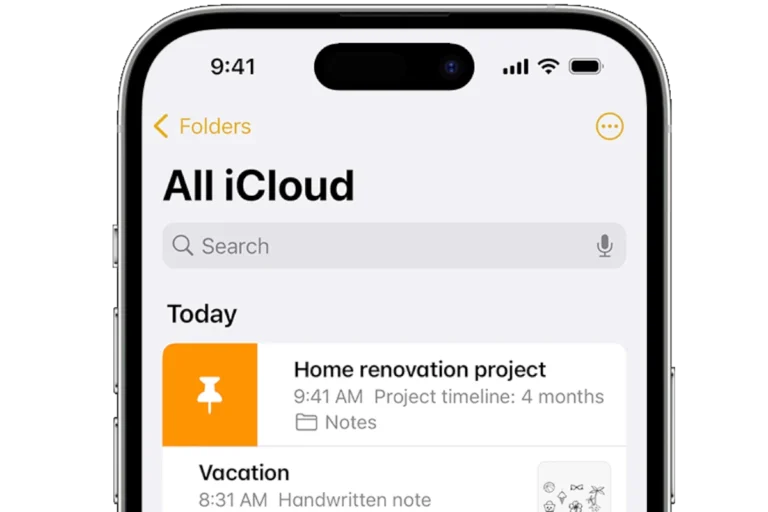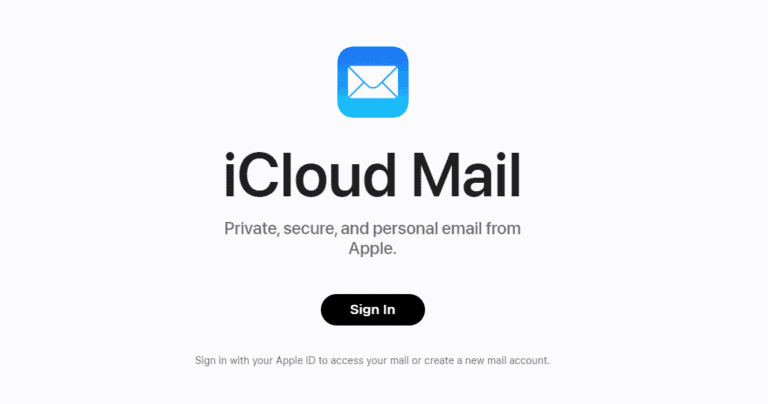It is possible, but it’s unlikely. Apple’s security features are top-notch and while nothing is impossible, your data is more than likely safe on their servers. But when someone is talking about “hacking” an iCloud account, most of the time they’re talking about getting in through the front door. People have ways to obtain your password, get through 2 factor authentication, etc.
It’s much more likely for someone to be able to steal your password and get in versus any traditional form of hacking. So while the term “hacking” creates worry, it’s important to understand the different ways someone could target your iCloud and the best ways to keep it secure.

Can Someone to Hack My iCloud?
Apple’s iCloud is central to the Apple ecosystem, storing your photos, files, backups, and even sensitive information like passwords and payment details. While Apple has strong security measures in place, no system is completely immune from hacking attempts.
This guide breaks down how iCloud can be compromised, warning signs to watch for, and steps to protect your account.
Can iCloud Be Hacked?
Yes, it’s possible—but usually not through Apple’s servers directly. Apple uses end-to-end encryption, two-factor authentication (2FA), and strong security protocols to protect accounts. Most breaches happen because of user-side vulnerabilities, such as:
- Weak or reused passwords
- Hackers use credential stuffing (trying leaked passwords from other sites).
- Phishing attacks
- Fake emails or texts that look like Apple messages trick users into entering login details.
- Compromised devices
- Malware or spyware on your iPhone, iPad, or Mac could capture your credentials.
- Social engineering
- Hackers impersonate Apple support or a trusted contact to gain access.
- Shared access
- If someone knows your Apple ID and password (like a partner or family member), they can log in unnoticed.
👉 Direct server hacks on Apple’s iCloud are extremely rare. Most breaches occur because attackers exploit user habits rather than Apple’s infrastructure.
Signs Your iCloud May Be Compromised
- You receive an Apple ID sign-in notification from an unknown device or location.
- Unexpected password reset emails or security code prompts.
- Missing or unfamiliar photos, files, or contacts.
- Apps or services behaving strangely (e.g., iMessage or FaceTime logged in elsewhere).
- Your device is locked or erased remotely without your action.
🛡️ How to Protect Your iCloud Account
1. Enable Two-Factor Authentication (2FA)
- Adds an extra step: even if a hacker has your password, they need your trusted device or phone number.
2. Use a Strong, Unique Password
- Avoid reusing passwords from other accounts.
- Consider a password manager (like 1Password or iCloud Keychain).
3. Beware of Phishing
- Apple will never ask for your password over email or text.
- Always check the sender’s email address before clicking links.
4. Check Account Access Regularly
- On your iPhone: Settings > [Your Name] > Password & Security > Devices.
- Remove any devices you don’t recognize.
5. Keep Devices Secure
- Install iOS/macOS updates promptly.
- Use Face ID/Touch ID and a strong device passcode.
- Avoid jailbreaking, which weakens security.
6. Review App Permissions
- Check which apps have access to iCloud Drive and Photos.
🆘 What to Do If You Suspect a Hack
- Change your Apple ID password immediately.
- Sign out of all devices remotely via Apple ID account page.
- Re-enable 2FA if it was disabled.
- Check recovery settings (trusted phone numbers, email addresses).
- Contact Apple Support if you can’t regain access.
✅ Final Thoughts
While Apple’s iCloud is generally very secure, your account is only as safe as your password and habits. Most hacks happen through phishing, weak credentials, or compromised devices—not Apple’s servers.
By enabling two-factor authentication, using a strong password, and staying alert to phishing attempts, you can greatly reduce your risk of being hacked.
Safeguarding Your iCloud: Protecting Against Hacking Attempts
Potential Security Risks
- Phishing Scams: Fraudulent emails or messages designed to trick you into revealing your Apple ID and password.
- Weak Password: Having an easily guessed password makes your account vulnerable.
- Unsecured Public Wi-Fi: Using public Wi-Fi can leave your iCloud data exposed.
- Malware: Harmful software may try to steal your login information.
Protecting Your iCloud Account
Here’s a table outlining essential security measures to protect your iCloud:
| Security Measure | Description |
|---|---|
| Strong Password | Create a long and unique password with a mix of letters, numbers, and symbols |
| Two-Factor Authentication | Adds an extra layer of security, requiring a code sent to a trusted device in addition to your password |
| Be Wary of Phishing | Never click on links or open attachments in suspicious emails |
| Update Devices | Keep your iPhone, iPad, and Mac updated with the latest security patches |
| Use Secure Wi-Fi | Avoid public Wi-Fi for sensitive activities or use a VPN |
Important Notes
- Apple has strong security infrastructure in place to protect iCloud.
- The most common way iCloud accounts are compromised is through user error (falling for scams or having weak passwords).
With vigilance and smart practices, your iCloud account can stay safe.
Understanding the Risks of iCloud Hacks
Cybercriminals have devised multiple ways to breach iCloud accounts, and understanding these methods is key to safeguarding your personal information. Recognizing the signs of a compromised account is also crucial for taking prompt action.
Common Methods Used By Cybercriminals
Phishing Attacks: Cybercriminals often use official-looking emails that mimic those from Apple to trick individuals into revealing their iCloud credentials. These phishing emails may prompt you to click on a link and enter your information on a fake Apple login page.
- Security Questions: Intruders may obtain answers to your security questions through social engineering or other public information, allowing them to bypass security measures.
- Malware: Installing malware on a device can give hackers a backdoor into your iCloud account without your knowledge.
- Spy Apps: These applications, when installed, can monitor your activities and transmit iCloud data to a third party. They often require physical access to the device for installation.
Jailbreak Tools: Jailbreaking an iOS device removes restrictions imposed by Apple, potentially allowing hackers to access the iCloud data on the device.
Identifying Signs of a Compromised iCloud Account
Unexpected Activity Alerts: Receiving alerts for access attempts or changes to your account that you did not perform can be a sign of unauthorized access.
- Data Breaches: Your personal information may suddenly appear in data breach databases.
- Identity Theft: If you detect activities like loans or services taken out in your name, it might be a result of compromised iCloud information.
Knowing these risks and staying vigilant can help protect your iCloud account from unauthorized access and potential security breaches.
Enhancing Your iCloud Security
To keep your iCloud safe, it’s critical to sharpen your security practices. Here’s how to stop potential intruders in their tracks.
Implementing Two-Factor Authentication and Strong Passwords
Two-factor authentication (2FA) adds an extra layer of security beyond just a password. When 2FA is enabled, accessing your Apple ID requires not only your password but also a verification code sent to a trusted device. To turn on 2FA, visit the Apple ID account page and navigate to the security settings.
A strong password is the first line of defense. Here’s how to keep it robust:
- Length: Make your password at least 12 characters long.
- Diversity: Use a mix of letters, numbers, and special symbols.
- Unpredictability: Avoid obvious substitutions like “pa$$word.”
- Originality: Don’t reuse passwords from other accounts.
Change passwords immediately if you suspect your account is compromised. Regularly updating passwords can also help maintain security.
Monitoring and Controlling Account Access
It’s vital to know who has access to your iCloud. Apple sends an email notification when someone logs into your account from a new device for the first time. Review these alerts to track for unexpected access.
To monitor recent activity:
- Sign in to your Apple ID account.
- Look for devices listed under the “Devices” section.
- Investigate any you don’t recognize.
For account recovery, you may be asked security questions. Choose answers that only you would know but can’t be easily guessed.
Securing Connected Devices and Data
Each device linked to your iCloud can be an entry point for hackers. Keep all your devices, including iPhone, iPad, and Mac, updated with the latest security patches and antivirus software.
Always log out of iCloud on shared or public devices. Moreover, use secure networks to prevent remote access by unauthorized users.
For personal data protection, enable iCloud’s two options: Find My iPhone and Activation Lock. They let you locate a lost device or prevent it from being erased without your passcode.
Remember, securing your iCloud is not a one-off task, but a continuous effort to protect your personal information.
Responding to an iCloud Security Incident
In the unfortunate event that someone’s iCloud account is compromised, it’s crucial to act swiftly and regain control. The paths to immediate action and account recovery are mapped out below.
Immediate Actions After Detecting Unauthorized Access
First things first: a person should change their iCloud password without delay. Doing so prevents the hacker from gaining further access. Here’s how one can do it:
- Go to Settings, click on their name, and then Password & Security.
- Click Change Password and follow the prompts to enter a new password.
Next, they should check for any suspicious activity on their account. This includes looking at recent login sessions and reviewing any changes to their account details. If they find anything unusual, they should:
- Notify Apple Support immediately.
- Activate Lost Mode on any devices they believe are compromised through iCloud.com.
Recovering and Securing Your iCloud Account Post-Breach
Once control is regained, securing the account for the future is paramount. The user should enable two-factor authentication for an added layer of security. This requires a verification code in addition to the password, when logging in on a new device.
They should then review backup options to safeguard their data, such as setting up regular iCloud backups or using a secure external backup method.
Lastly, it’s recommended to:
- Regularly review the App Store and other linked accounts for unknown applications or services.
- Update recovery information, like a trusted email address.
- Always keep an eye on the security recommendations provided in the Settings of their Apple devices.
Frequently Asked Questions
The security of your iCloud account is crucial to protect your personal data. These frequently asked questions help shed light on common concerns and provide actionable guidance to enhance your account’s security.
How do I know if my iCloud account has been compromised?
If you notice unexpected changes in your account settings or receive alerts about unrecognized logins, your iCloud account may have been compromised. Apple often sends notifications or emails when suspicious activity is detected.
What are common signs of unauthorized iCloud access attempts?
Common signs include receiving password reset emails you didn’t request, finding unfamiliar devices linked to your iCloud account, or noticing alterations in your contacts, calendar, or emails that you didn’t make.
How can I improve the security of my iCloud account?
To bolster your iCloud security, enable two-factor authentication, use a strong password unique to iCloud, and avoid sharing your login details. Regularly check your account for any unusual activity.
What steps should I take if I suspect my iCloud has been hacked?
If you think someone has accessed your iCloud account, change your password immediately, review account activity for any anomalies, and contact Apple support for further assistance.
How often do breaches in iCloud security occur?
While Apple employs robust security measures, breaches do occur, most often due to user factors such as weak passwords or falling for phishing scams. Always stay vigilant to minimize risks.
What risks are involved if someone obtains my iCloud information?
Unauthorized access to your iCloud can lead to data theft, including personal photos, sensitive documents, and contact information. It can also lead to identity theft or financial loss if payment information is compromised.





